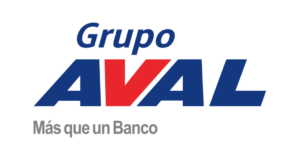
It is a landmark FCPA resolution, marking the “first-ever joint FCPA bribery prosecution with Colombian authorities,” said Erek Barron, U.S. attorney for the District of Maryland.
In its resolution with the Department of Justice (DoJ), Corficolombiana entered a three-year deferred prosecution agreement and will pay a criminal penalty of $40.6 million, half of which the DOJ credited against money that Corficolombiana and its subsidiary, Episol, paid to Colombia’s Superintendence of Industry and Commerce (SIC). This means the company will pay a total criminal fine of $20.3 million. In return, Episol must drop their appeals of the SIC resolution, the DOJ said.
Separately, Corficolombiana will pay $32.1 million in disgorgement and prejudgment interest of $8.1 million in a parallel resolution with the SEC, which said it did not impose a civil penalty due to the DoJ imposing its criminal fine.
Case Background
According to court documents, between 2012 and 2015, Corficolombiana conspired with Odebrecht, a Brazil-based global construction conglomerate, to offer and pay more than $23 million in bribes to high-ranking Colombian government officials and an executive at Colombia’s state-owned infrastructure agency in exchange for a 328-mile highway infrastructure project, known as the Ocaña-Gamarra Extension.
According to the SEC order, Corficolombiana caused Grupo Aval’s violations and provided Grupo Aval with an improper financial benefit totaling approximately $32 million, the SEC said. Corficolombiana earned approximately $28.6 million in illicit profits. According to the SEC, the illicit payments were paid “with the knowledge, approval, and assistance of Corficolombiana’s former president.”
“[B]ribes were funded through payments made for invoices lacking supporting documentation and contracts for vaguely-described services typically handled internally rather than by third parties,” said SEC FCPA Unit Chief Charles Cain. “This case once again highlights the importance of issuers having sufficient internal accounting controls over third-party payments.”
“The bribe scheme took place against a backdrop of a failure to maintain sufficient internal accounting controls and books and records that concealed the bribes as legitimate business expenses,” the SEC order stated. “As Grupo Aval’s agent, Corficolombiana violated the anti-bribery provisions of the FCPA and was a cause of Grupo Aval’s violations of the books and records and internal accounting controls provisions of the FCPA.”
Cooperation Credit
Both the SEC and DOJ in their respective resolutions considered Grupo Aval’s cooperation and remediation efforts. According to the SEC’s order, Grupo Aval’s cooperation included “voluntarily summarizing and providing facts developed during their own internal investigation and producing and translating certain documents.”
The DOJ similarly credited Corficolombiana for cooperation, which the agency said included:
- Timely providing facts obtained through the company’s internal investigation;
- Making “numerous detailed factual presentations that distilled certain key factual information”;
- Producing documents that the government “may not otherwise have had access to in ways that did not implicate foreign data privacy laws”;
- Providing sworn testimony from Colombian criminal and administrative proceedings of relevant witnesses “whom the government could not independently interview”;
- Proactively identifying information “previously unknown to the government”; and
- Collecting and producing “voluminous relevant documents and translations.”
Both agencies further credited the company with extensive remedial measures, including:
- Conducting a root cause analysis of the conduct identified during internal investigations and promptly taking actions to enhance its corporate governance and controls at joint venture entities, as well as improving its oversight of non-controlled joint ventures and investments;
- Overhauling its compliance program;
- Enhancing its third-party intermediary risk management process;
- Implementing a robust process for reporting and investigating allegations of misconduct;
- Establishing a disciplinary process overseen by a cross-functional ethics committee;
- Conducting testing of its anticorruption compliance program; and
- Engaging in a periodic review of and updating of its anticorruption compliance program.
Consequently, the criminal penalty calculated under the U.S. Sentencing Guidelines reflected a 30% reduction off the bottom of the applicable guidelines fine range, the DOJ said. Additionally, Corficolombiana agreed to continue cooperating with the agency in any ongoing or future criminal investigations relating to this conduct and agreed to continue making enhancements to its compliance program and reporting to the DOJ regarding its progress. ![]()
Jaclyn Jaeger is a contributing editor at Compliance Chief 360° and a freelance business writer based in Manchester, New Hampshire.

